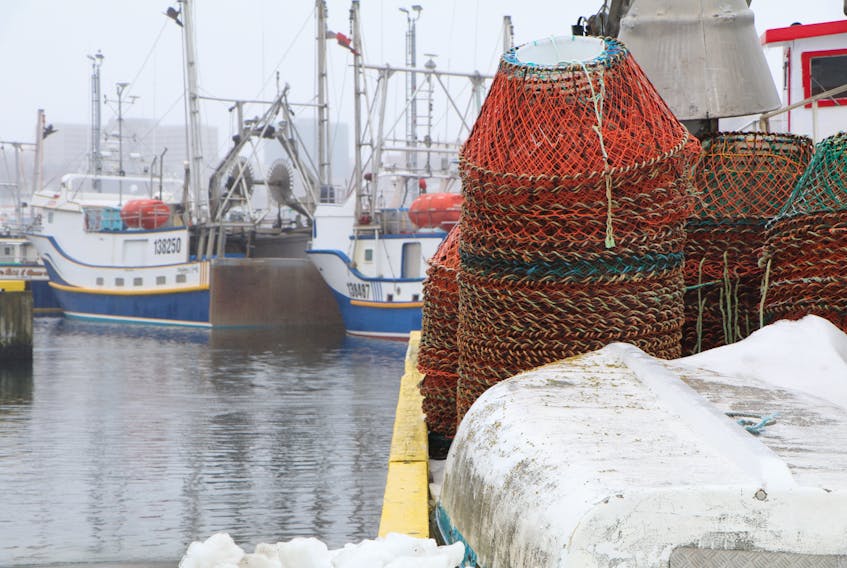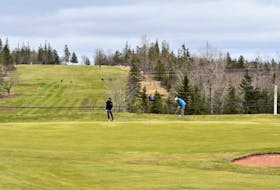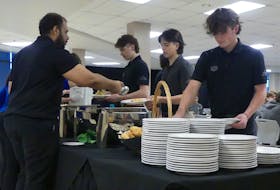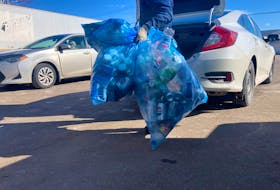ST. JOHN'S — The Newfoundland and Labrador fishing industry has plenty of experience when it comes to facing down challenges.
Harvesters and processors have dealt with declining fish stocks and aging workforces over the years, but the COVID-19 pandemic is a different sort of beast, bringing with it dual challenges.
On a workplace safety level, the virus will keep boat crews sharing tight quarters on their toes. Meanwhile, in the fish plants, workers will need to be mindful of social distancing and watch for symptoms that may force them to consider self-isolating rather than risk the health of colleagues.

Then there's the economic impact of the pandemic. Restaurants are either closed or restricted to serving take-out only. Big buyers like cruise ships and casinos are simply not there right now.
Derek Butler, executive director of the Association of Seafood Producers (ASP), said conversations between processors and the FFAW-Unifor, the union representing harvesters in Newfoundland and Labrador, started in early March.
"We were prepared then to start to talk about COVID-19, the uniqueness of it, the market challenge it might represent in terms of restaurants being closed — we sell a lot of our product to restaurants," Butler told The Telegram.
Thus far, market considerations have taken a backseat to addressing workplace health and safety at the plant level and on the vessels, according to Butler, who also credits his counterparts at the union for keeping the lines of communication open over the last couple of weeks.
"We've got a steering committee that oversees it," he said. "We've got two working groups set up on harvesting and processing. Within ASP, we have our own internal plant operations committee, and that includes producers outside of ASP who are a party to that, and we're talking about what it is we need to do ... The conversation now is what do we need to do in our plans to keep workers safe ... and what is the interface between the vessels and the plants."
Delayed opening
FFAW-Unifor has taken a cautious approach to venturing into the new fishing season. Last Wednesday, the union put out a news release recommending the Department of Fisheries and Oceans postpone the opening of the snow crab fishery until at least April 20. According to the release, the union's snow crab committee and inshore council intend to evaluate the situation daily to see whether that date should be pushed back even further.
"Right now there's a whole host of challenges," said Keith Sullivan, president of FFAW-Unifor. "First and foremost, we're focused on making sure we can have a safe fishery, and that means looking at safety on fishing vessels and dockside and then safety in plants."
In the event a safe fishery can proceed, the hope for harvesters will be to get as much value out of crab and other species as they can muster. In light of economic uncertainties, the union has asked DFO to waive all 2020 licensing fees and extend Employment Insurance for harvesters to address any season delays related to COVID-19. Last Friday, federal Fisheries Minister Bernadette Jordan issued a joint statement with provincial ministers, declaring harvesters and plant workers would be able to access the new Canada Emergency Response Benefit, which provides up to $2,000 per month for four months. Sullivan said that benefit would not necessarily help harvesters deal with the full scope of what financial obligations they have to contend with.

"In a scenario where it seems inevitable that we'll have major declines in value, even if we do get to have some regular fishery at some point or a worst case where we don't get to harvest and there's no markets available ... what has been announced to date is certainly not going to be something that's going to pay for people's investments in licences or mortgages on boats and major, massive payments like that," he said. "Obviously, we've talked to banks, who have in many cases deferred principle payments and things like that. But as this progresses, we'll have to look at what other aids can be put in place to make sure we have a valuable and skilled fishing fleet that's able to continue beyond this year."
Marketplace challenges
With restaurants and cruise ships largely out of the picture during the pandemic, the big hope for fisheries like crab will be in the retail market. Butler noted grocery stores are doing a lot of business, in part because people are not eating out. He noted unknowns remain in play when it comes to volumes and the all-important price.
"The restaurant trade is dead. There's no cruise ships travelling or ordering snow crab or any seafood product. But all of the food in North America that otherwise would have gotten consumed in restaurants, casinos and cruise ships, all of that is now going to be consumed in retail. There's pressure in retail ... Sobeys and Dominion, people are very busy. There's lot of sales, and sales are up because ... everything that gets eaten has to come out of a retail shop or a deep freeze at home. We sell $1 billion of seafood every year, and the world will want that seafood production. It has to come from somewhere."
In the meantime, Butler said it will be important to keep an eye on what's happening in regions where fishing is already underway — like British Columbia — to help identify best practices for keeping everyone in the industry safe.
"Reduce the shifts, reduce capacity, put dividers between work stations, keep people out of the lunchrooms — all that stuff needs to be done, and that's going to take time. Probably up until the delay that the FFAW are talking about."
Twitter: @CBNAndrew









